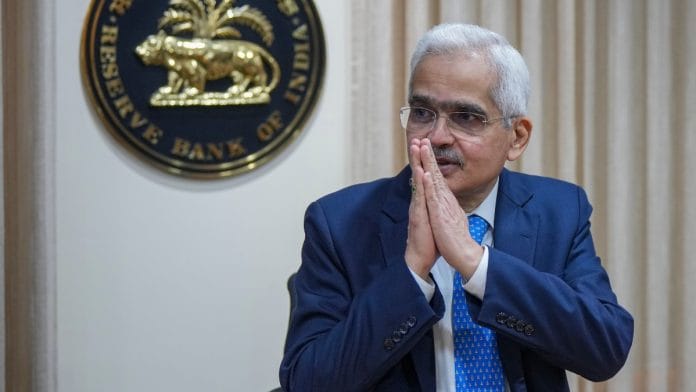The Reserve Bank of India issued directions to four non-banking finance companies not to disburse new loans after 21 October 2024. The directions suggest these companies were violating regulations and have now been asked to take remedial action. The press release, however, doesn’t provide adequate information on what exactly happened, and how customers and other regulated entities should read these actions.
What action did the RBI take and why?
The RBI does not release its orders in the public domain. Our inference, therefore, comes from the press release. The RBI finds the four NBFCs guilty on multiple counts: these entities levied interest rates that were excessive and did not follow RBI regulations; they were not following provisions laid down under the Fair Practices Code and regulations that required them to asses household income before giving a loan; they issued ever-greening loans; there were issues with conduct of gold loan portfolio, mandated disclosure requirements on interest rates and fees, outsourcing of core financial services, etc. The companies have been told not to give out fresh loans until they have fixed all the problems to the RBI’s satisfaction. However, they have been allowed to continue operations with existing customers.
Information for customers
Most of the complaints against the four companies seem to pertain to small loans, which presumably have to do with unsophisticated consumers. The regulations that the firms violated were put into place so that firms behave better with customers, and if they misbehave, customers would have recourse to the complaints mechanism and seek redress.
If you were a consumer of any of these NBFCs, what could you tell from the press release? There are many violations the NBFCs are charged with. The press release does not inform you what the entity is guilty of – one should probably presume that all were guilty of everything that is mentioned. This means that you were charged usurious interest rates and were a victim of unfair practices. The press release, though, does say that in the context of micro-finance loans, the firms were not assessing household income or existing repayment obligations before providing a loan. If you are a consumer desperate for the loan, this perhaps makes you feel better, because otherwise you may have been denied credit.
The regulatory actions offer existing customers no recourse. The NBFC can continue collecting repayments from you. If there were such egregious consumer protection violations, shouldn’t existing consumers be offered some recourse? Should the companies not be asked to evaluate which of their consumers have been wrongly charged? The companies were allowed to complete ongoing transactions between 17 and 21 October. What should consumers who were in the process of taking a loan during this period make of the press release? Are the companies expected to take suitable remedial actions for these loans? Clarity in the press release on what the charges against each NBFC are and what RBI means by suitable remedial actions might at least help consumers file complaints and decide their next course of action.
Information for other firms
The primary concern raised in the press release seems to be that of usurious interest rates. This is a bit of a puzzle because the RBI policy on interest rates has been fairly liberal. The board of the organisation is supposed to lay out the interest rate policy, and the firm has to adhere to it. The policies had to detail out ceilings on interest rates and all other charges.
The press release tells us that “the Weighted Average Lending Rate (WALR) and the Interest Spread charged over their cost of funds, which are found to be excessive and not in adherence with the regulations”. But the regulations place the responsibility on the board. Does this mean that the firms violated the policy set out by their board? Is this what is meant by “not in adherence with the regulations”? Or does the RBI mean that it has a view on what “excessive” is, and even if the interest rates were in adherence to what the board had set out, the RBI found them to be excessive. The implications to other regulated entities would significantly differ based on the answer to this question.
Similarly, the RBI is unhappy with how the companies have assessed household incomes. Other regulated entities might benefit from knowing how the RBI thinks of good methodology for calculating household incomes — especially because the NBFC has a clearer picture of the household it is dealing with than the regulator. The RBI may already have spelt out details in its circulars on how to do this, but those seem to not have been enough.
Some analysts have suggested that what is really going on is that the RBI is wary of the co-lending model adopted by two of the NBFCs, and these actions are a signal to the market to go slow on unsecured lending. The press release, however, provides no such indication. Had the press release been clearer, regulatory intentions would be better understood.
The importance of clarity
Regulatory actions serve important signals not just for the specific entity but the market too. When the regulator clearly articulates the principles it has applied, other regulated entities in similar situations get informed on what is acceptable and what isn’t. Perhaps there are informal channels in Mumbai where the rationale for regulatory actions is known and discussed, and one just has to be plugged into the network to know what is going on. However, that cannot be the basis of regulation in an aspirational economy.
Renuka Sane is managing director at TrustBridge, which works on improving the rule of law for better economic outcomes for India. She tweets @resanering. Views are personal.
(Edited by Humra Laeeq)






